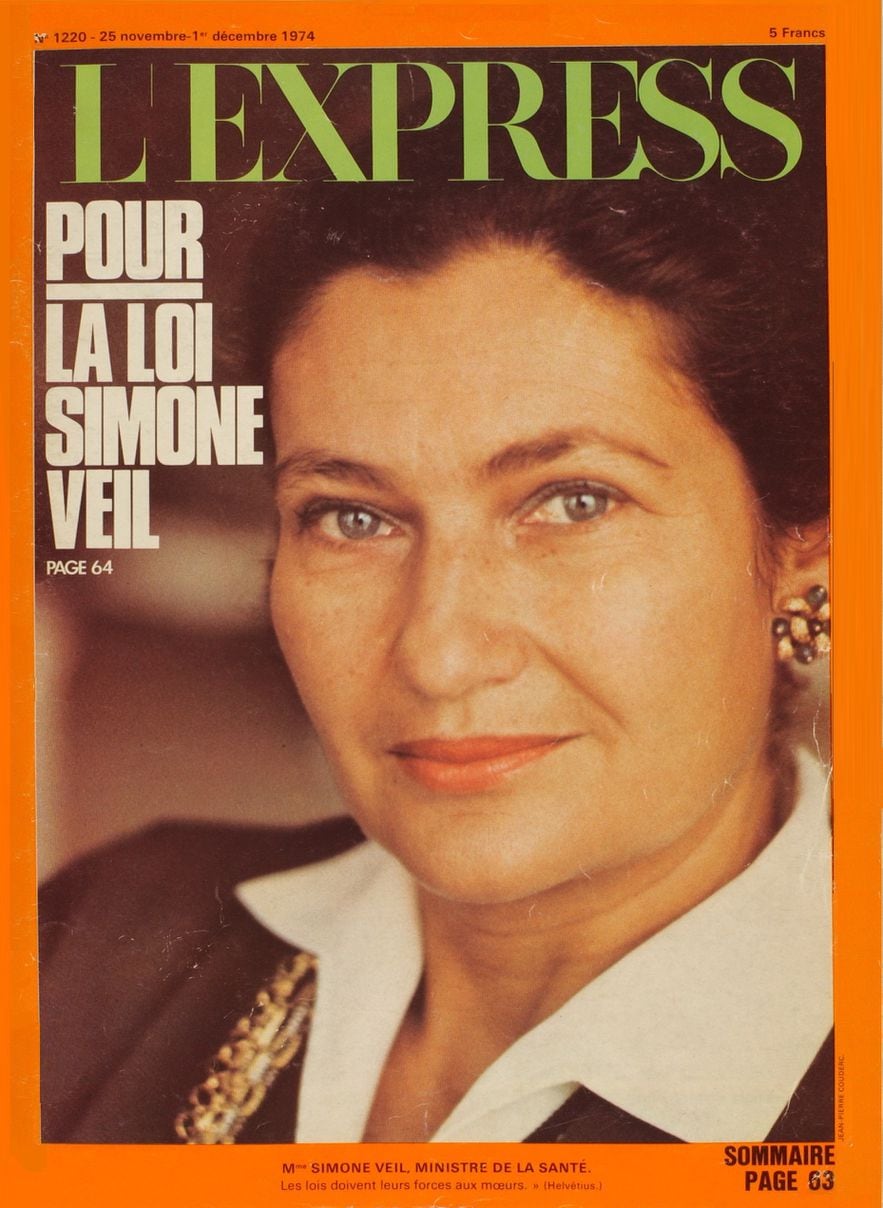Since the creation of L’Express, Françoise Giroud has regularly spoken in our columns on the subject of abortion. In 1956, in an article entitled “Saturday Sick People”, she said: “The doctors know it well. It is always on Saturday evening that we call them when there has been an accident. Because we have counted on Sunday to rest.” In 1962, she asked about clandestine abortion: “Or [l’opération] is clandestine, and you have to want to be deaf and blind to believe that a woman submits to this martyrdom without being harshly forced to do so.” In 1971, while the coverage of L’Express for legalization multiplied, the director of the editorial team defends “the most intimate of individual freedoms” now called to enter the Constitution after the vote of Parliament meeting in Congress this Monday March 4.
L’Express of April 12, 1971
The right to say no
The director of New Observer, who has a heart and likes ladies, urges everyone to choose their side and call themselves left-wing by declaring themselves in favor of free abortion. He adds that “it’s a very simple problem.” I do not believe.
I believe, on the contrary, that there is no problem more complicated and which more deeply involves the relationship with oneself. And with the Other, because, until further notice, children are made in pairs. But let’s leave the unconscious, although in this matter it has more than its say.
And let’s leave the community, although it is not a negligible aspect of the problem. We could even say, borrowing its vocabulary from the Women’s Liberation Movement, that it is a characterized petty-bourgeois individualist attitude to give priority to one’s immediate personal comfort over the general interest. And nothing disrupts comfort more, as we know, than one or more children. To have it today, in the state where the cities and schools are, you need a little courage, generosity, unreason, and a lot of optimism.
Cover of L’Express n° 1018 of January 11, 1971
© / THE EXPRESS
But everyone has the right – or should enjoy the right – to have neither courage, nor generosity, nor unreason, nor optimism. Nor children. It is the most intimate of individual freedoms. France is one of the last countries where this freedom is denied.
So yes, repressive legislation against abortion must be abolished. Yes, we must free French women from accidental pregnancies, from children who come too early to be loved, this prey for neurosis, from those who grow too late in the womb of an exhausted woman.
Yes, the practice of clandestine abortion must stop – at least a thousand per day, officially.
Yes, our laws are moribund, since they are also widely transgressed. When a society is at this point where transgression becomes the common rule, it is because its morality is exhausted.
The interesting thing about the collective exhibition of 343 autographed fetuses, old and recent, in which a certain number of notorious women participated, not without merit, by declaring “I had an abortion”, is not the scandal. It’s non-scandal. As if they had revealed nothing that everyone, apart from themselves, did not already know. Simply, until now, we haven’t shouted it from the rooftops. Asked to shout it out, they agreed. And this pitiless justice that is public judgment acquitted them. From then on, it is clear that the repression of abortion is close to its extinction, killed by derision. It is only a question of time, of method, of dialectical skill.

In 1973, the debate on abortion on the cover of L’Express.
© / The Express
Ethics of yesterday versus ethics of tomorrow
Morals always precede laws, we will first see doctors carrying out, without hiding, therapeutic abortions. Let some of them, in turn, have a little nerve, let them get together, let them publish the list of practitioners determined to perform abortion under precisely defined conditions, and, if there are any among them some of great renown, who will dare to pursue them? The entry into our society of illegal but not clandestine abortion will occur because it will be practiced in the name of a new morality against a disintegrated morality.
In moments when an ethic collapses because it is no longer made up of rules broken by a few but of hollow words in contradiction with general behavior, men and women always stand up, rebel against the Pharisees, these whitened sepulchres, said a certain Jesus with a violence of language that would have him filed with Mr. Marcellin today. It turns out that we are at the bottom of one of those periods where the ethics of tomorrow, in gestation, collide with the ethics of yesterday, in decomposition. That it’s not easy to live between two systems. Let it look like a civil war with many people wounded in the soul, light or serious. It is in relation to this developing morality that we must think about abortion.

Simone Veil on the cover of L’Express on the eve of her speech to the National Assembly on abortion.
© / The Express
What gives a political connotation to the appeal of the 343 is that legal abortion does not pose a material problem today for informed women who have some money. England is just a stone’s throw away, it is even one of its rare expanding industries, thanks to French participation. It is other women who continue, in France, to pay the price of the law by suffering the humiliation and pain of clandestine abortion. It is therefore an egalitarian demand, posed by a group of advantaged women for the benefit of the less advantaged: abortion for all, without conditions. Objection?
I have one: not for equality, but for abortion free from all obstacles. Intelligently controlled, as is the case in Sweden, it is a pure sign of civilization. It’s a mean. This is not a solution proposed to the fact of being a female person able to find herself pregnant twelve times a year. So what ? Twelve abortions? Like drunkards who put two fingers in their mouth to vomit and then, once a little smeared, can start again? This is pure and simple abdication before men, whatever it appears, before the power they have to impregnate women while others have the power to then abort them.
Well, I say no! I say that being a “free” woman, as much as one can claim to be free, is learning to take care of oneself, that is to say, on this precise point, to use contraceptives. To recover his body. It is being able to use the essential right to say “no” to fertilization that you do not want, before submitting to it. It’s mastering the ancient biological passivity that made women’s destiny.
I say that making women free means making them responsible for themselves and their descendants if they want them, that is to say, teaching them the use of contraceptives, spreading it, facilitating it, make it free, support it with intense propaganda. It is a great cowardice of the French public authorities to have shied away from this duty. Alas! When a society is blocked, it is blocked in all its cogs.
I say that legal abortion must now be instituted and very widely consented to, that we will inevitably come to this, like all egalitarian measures, but that, if it is not subject to any moderating control, freedom What women will get from it will be bitter like the taste of loneliness and failure. I say that they will, once again, be cheated.
Equality? All right. On condition of not becoming equal in resignation, irresponsibility, infantilism and inability to assume the human condition.
